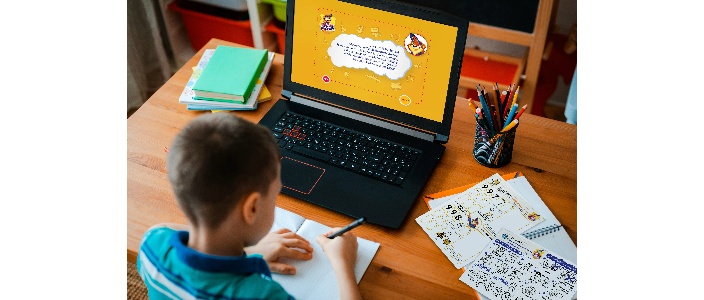Akademia Bezpiecznego Puchatka is the largest national educational campaign in Poland, focusing on the safety of the youngest, carried out under the patronage of the Chief Police Commander and most of the Education Superintendents. The programme is aimed at pupils in years 1 to 3 of primary schools, where safety education is extremely important. Teachers, using new content developed on the basis of rapid learning techniques, taught the youngest about safety in four areas: at home, on the Internet, at school and on the road. As the chief of police Robert Opas from the Traffic Office of the Police Headquarters said, “Akademia Bezpiecznego Puchatka is an important initiative on a national scale. A child’s safety is primarily based on his or her awareness of this, regardless of the circumstances. The youngest should gradually learn about the potential risks they may encounter and then learn how to deal with or avoid dangerous situations. One example is the knowledge that children acquired about the ban on crossing the road in prohibited places. However, this applies to every area of safety – by educating children about the rules in force, including in emergency situations such as we have today, we make them aware of the effects of their own behaviour, we teach them to take care of themselves. We also show them that concern for the common good and security requires the application of certain principles.”
Children know the basics of safety
The results of the Safety Test, which more than 130,000 children took part in during this year’s edition, show that the youngest have gained valuable knowledge. “Although, from the point of view of adults, the questions and answers might seem trivial, let us remember that the youngest are only just learning why certain elements are so important for safety. For example, it can be difficult for children to behave properly on the Internet or to identify potential dangers at home. That is why the Akademia Bezpiecznego Puchatka programme, conducted in cooperation with educators, is an important contribution to raising children’s awareness of their own safety. We have been patrons of the campaign for years, because we believe that a programme which ultimately increases the knowledge of the youngest in this area is very important for the safety of children,” said insp. Wanda Mende, Head of the Social Prevention Department of the Bureau of Prevention of the Police Headquarters. The Safety Test shows the effects of the education provided under the programme. If 87% of children know that when they encounter something worrying on the Internet, they should report it to their parents, then we can say that the youngest children have this knowledge and will be able to use it when necessary. First year pupils have also gained knowledge which is now very useful; for example, 71% of the youngest can point out the dangerous objects they can find at home and which they should watch out for. This is very valuable in the context of remote learning, which they are currently doing at home instead of in schools.
Safety on the Internet
An important element of education, including in terms of safety, is also the way in which knowledge and teaching methods are passed on, and in recent weeks these have had to be adapted to the new reality, which has been surprising for both teachers and pupils. Ewa Bensz-Smagała, child psychologist and trainer of memory techniques, owner of the school of effective learning Lucky Mind, admits that this probably posed quite a challenge for educators and children. “Remote learning required a certain modification of the ways of education, which would allow knowledge to be passed on and the interest of several years old to be maintained online. A child’s mind is fortunately very open to the absorption of information in new circumstances too. However, the Internet itself may have proved to be a challenge – the focus of attention may have provided some difficulties for children, given that a great many things are happening simultaneously on the Internet. An additional point was safety – children on the Internet are not always able to clearly identify potential risks. Fortunately, in the materials of the Akadrmia Bezpiecznego Puchatka programme, we have also raised issues concerning safety in the net. At the same time, all scenarios work well for remote learning, so they can be used in the current situation. We have created materials with the aim of not only helping to convey knowledge about safety, but also providing additional support for teachers’ work and the learning of the youngest.” The free teaching materials developed in this year’s edition of the programme, which the teachers received electronically, were prepared by qualified methodologists based on rapid learning techniques. Teachers were able to use their methods for education in other areas as well, which may have a positive impact on students’ learning outcomes.
The next edition of the Akademia Bezpiecznego Puchatka programme
The 11th edition of the Akademia Bezpiecznego Puchatka programme has come to an end. The schools that implemented the programme received a Certificate of Participation and the students received special Diplomas. Today we are already inviting teachers to participate in the 12th edition; details will be provided on the programme’s website:








